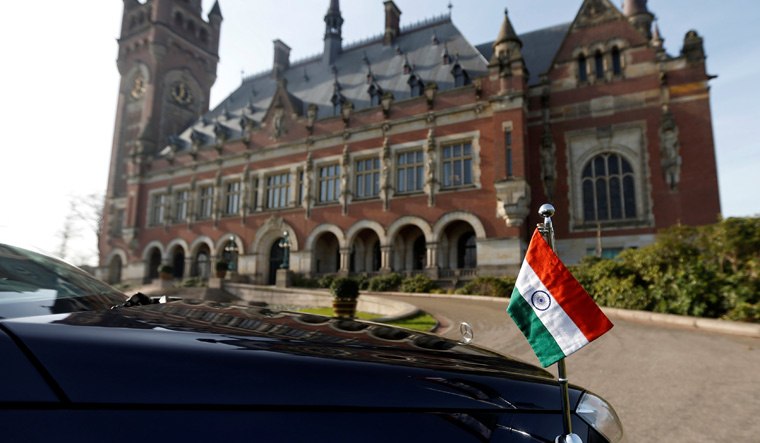Pakistan chose to focus on violation of “human rights’’ by India on the last day of hearings on the Kulbhushan Jadhav case at the International Court of Justice in The Hague on Thursday. From referring to the Kathua rape case, Gujarat riots, pellet gun injuries and the Samjhauta Express, Pakistan’s agent, Anwar Mansoor Khan, played to his domestic audience by trying to discredit the Indian judicial system.
Referring to the Pulwama suicide bombing, Khan said Pakistan wanted proof about the incident, which India had blamed on the Pakistan-based Jaish-e-Mohammed terror group.
“India has become a judge and executers and call themselves victim. India has no reply to proof,’’ Khan declared. In his remarks to the ICJ, at the end of the session, Khan said that Jadhav did have recourse to a civilian court. A case of terrorism has been filed in a civil court, and Jadhav will be given legal representation if he wants it.
“Very strong, uncalled-for criticism has been called on Pakistan and the judicial system,’’ said Khan. Jadhav was given a choice of a lawyer, but he chose to be represented by the in-house defence counsel. “If he chooses judicial review, he can choose his own lawyer,’’ Khan said. The right to choose judicial review lies with the convict.
The hearing started with the Pakistan counsel, Khawar Qureshi, responding to the arguments of the Indian counsel Harish Salve. The tit-for-tat personal battle continued as Qureshi said he agreed with Salve that characters of Wonderland were not to be brought in this court. In an underhanded reference to Salve, Qureshi said that a “rotund character with a fragile cranium’’ was brought in by India.
If Salve found himself to be colourfully referred to by Qureshi, so did India’s “super spy’’ Ajit Doval. Qureshi flashed a picture of the NSA—the second time in the ICJ—saying that if Doval ever came to London, he could apply for being cast as the actor who plays James Bond.
“What Pakistan has not done is allow itself to be provoked,’’ said Qureshi. “What Pakistan has maintained [is] its dignity,’’ Qureshi said. It was “wrong’’ for India to point fingers at the Pakistan legal system, he argued. “To suggest that not a single trained judge was capable’’ to judge Jadhav was improper as was India’s argument that Pakistan military courts were a sham. No military court had convicted any juvenile, he claimed.
“India’s claim for relief remains as far fetched. India’s arguments are devoid of legal merit,” Qureshi declared.



